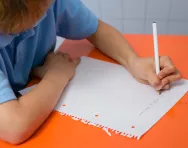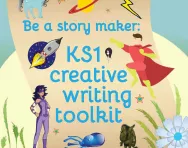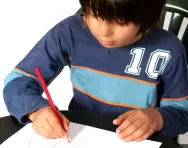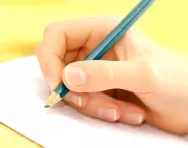Important update from TheSchoolRun
For the past 13 years, TheSchoolRun has been run by a small team of mums working from home, dedicated to providing quality educational resources to primary school parents. Unfortunately, rising supplier costs and falling revenue have made it impossible for us to continue operating, and we’ve had to make the difficult decision to close. The good news: We’ve arranged for another educational provider to take over many of our resources. These will be hosted on a new portal, where the content will be updated and expanded to support your child’s learning.
What this means for subscribers:
- Your subscription is still active, and for now, you can keep using the website as normal — just log in with your usual details to access all our articles and resources*.
- In a few months, all resources will move to the new portal. You’ll continue to have access there until your subscription ends. We’ll send you full details nearer the time.
- As a thank you for your support, we’ll also be sending you 16 primary school eBooks (worth £108.84) to download and keep.
A few changes to be aware of:
- The Learning Journey weekly email has ended, but your child’s plan will still be updated on your dashboard each Monday. Just log in to see the recommended worksheets.
- The 11+ weekly emails have now ended. We sent you all the remaining emails in the series at the end of March — please check your inbox (and spam folder) if you haven’t seen them. You can also follow the full programme here: 11+ Learning Journey.
If you have any questions, please contact us at [email protected]. Thank you for being part of our journey it’s been a privilege to support your family’s learning.
*If you need to reset your password, it will still work as usual. Please check your spam folder if the reset email doesn’t appear in your inbox.
Penpals: an engaging and lifelong learning activity
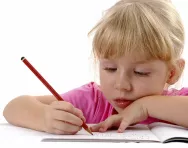
With the increasing variety of quick and easy ways to communicate, letter-writing has fallen down the list of top ways to convey information. Regularly corresponding via envelope and stamp is seen as quaint, and waiting eagerly for letters to arrive in the day’s post is eclipsed by instant-answer emails and text messages.
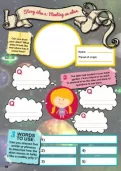
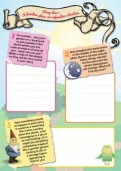
Download a FREE Creative Writing toolkit!
- KS1 & KS2 workbooks
- Bursting with fill-in prompt sheets and inspiring ideas
- Story structure tips, style guides and editing suggestions
But, this doesn’t mean today’s children don’t want to experience the same thing –they love it when the postman brings them cards and letters, and writing their own letters on fun stationery. Having a penpal can re-awaken this love for letter-writing, and also teach your child about another culture through the eyes of someone who’s a similar age. It will also help them practice penmanship and communication, and introduce them to a friend they may very well keep in touch with for years to come (it does happen!).
Be twinned with a school
Some teachers have their year groups participate in penpal schemes with another schools in the UK, arranged through their own connections or through an online teacher forums such as the Times Educational Supplement site.
Teachers can also liaise with schools in Europe through websites such as Europa Pages, which is a great way for students studying another language to practise their grammar and vocabulary.
Sponsor a child
Some charities offer the opportunity to sponsor children in underprivileged areas around the world, one of which is Plan UK. When you sign up to sponsor a child, Plan UK will ‘assign’ you a child and send you information and photos.
You’ll be able to write to them as well, which is an ideal activity for your own kids to do. When you sign up, you can choose to sponsor a boy or girl, and also request children of a specific age or from a certain country. Let your child choose their penpal, or leave it all up to Plan UK and be surprised when the details come through in the post!
Sign up online
Why have one penpal when you could have 5, 10 or even 100! Postcrossing is a brilliant scheme that involves sending postcards to addresses around the world, randomly generated by the website. It’s free to sign up, and the more postcards you send, the more you’ll receive. To help your child get into it, put pins in a map to track their progress – one colour for postcards they’ve sent out, and another for where they’ve received cards from.
There are lots of other ways to help your child practise handwriting, such as writing a letter to Santa and making their own books.
